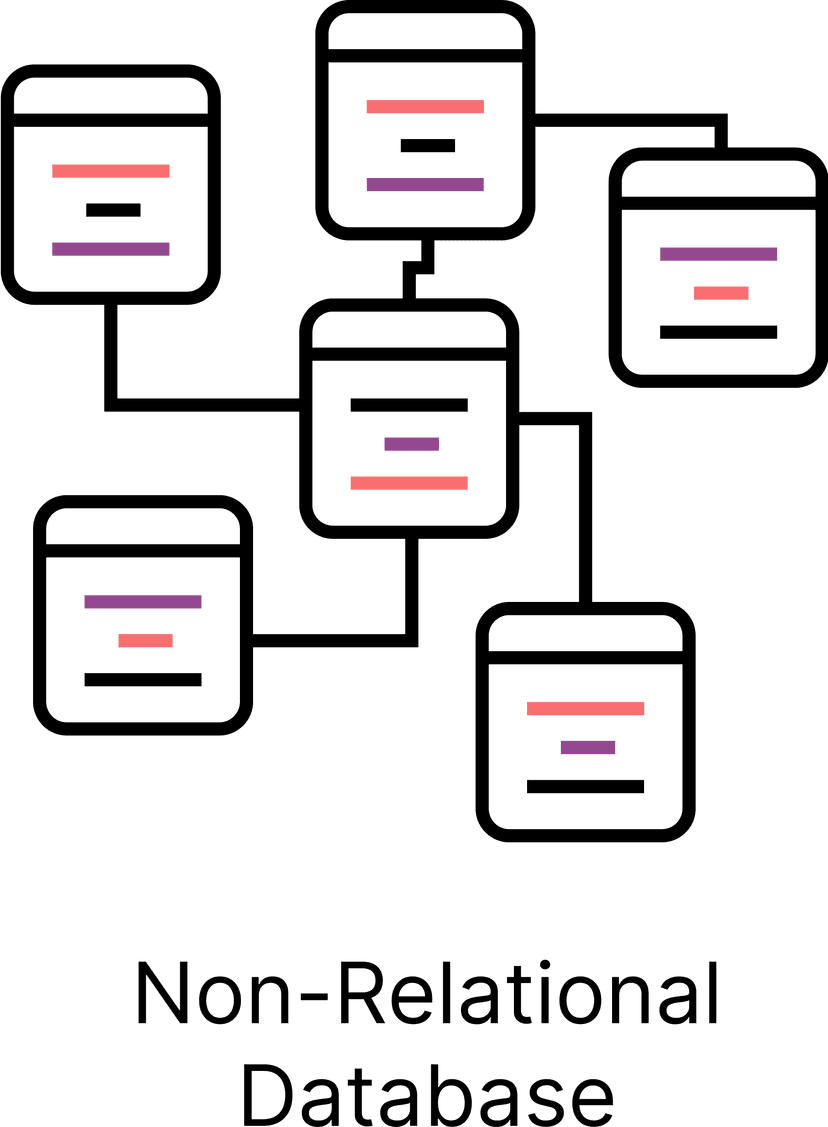Non-Relational Database

What is a non-relational database?
Definition
A non-relational database, also known as a NoSQL database, is a type of database that does not use the traditional table-based structure found in relational databases. Instead, it uses various data models like key-value, document, column-family, and graph to store and manage data.
Analogy
Imagine a library that doesn't organize books by the Dewey Decimal System or any other traditional method. Instead, it groups books based on their content, author, or other unique characteristics. This unconventional organization method allows for more flexibility and efficiency when searching for specific information.
In other words
A non-relational database is a flexible and efficient way of storing and managing data without using the traditional table-based structure.
Why is a non-relational database important?
It's one thing to know what a non-relational database is, but that is worthless if you don't know why you should know what a non-relational database is in the first place. Let's break down the importance of this tech term based on two high-level categories. We'll walk through an explanation as well as provide a score, 1-10, that shows you how much you should care about non-relational databases.
Pre-Product: 3/10
If you don't have a product yet, non-relational databases may not be a top priority. However, understanding the concept and its benefits can help you make informed decisions when designing your product's data storage and management system. At this stage, it's essential to focus on your product's core features and functionality.
Live Product: 7/10
If you have a live product, non-relational databases become more critical. They can help you handle large volumes of unstructured or semi-structured data, improve scalability, and enhance performance. If your product deals with diverse data types or requires high read/write speeds, considering a non-relational database is essential.
Examples of non-relational databases
So you know what a non-relational database is, by definition. You know if you should care about it or not depending on your situation as a business/company/product. To dig in deeper, we will walk through some tools and processes so we can make sure you really have a solid grasp on non-relational databases.
Popular Non-Relational Database Platforms
- MongoDB: A popular open-source document-based database that stores data in JSON-like format. It is highly scalable and offers high performance for both reads and writes.
- Cassandra: A highly scalable and distributed column-family database designed for handling large amounts of data across many commodity servers with no single point of failure.
- Redis: An open-source, in-memory key-value store that can also function as a cache and message broker. It is known for its high performance and flexibility.
- Neo4j: A graph database that focuses on storing and querying data as nodes and relationships, making it ideal for complex and highly connected data.
Key Takeaways:
- A non-relational database is a flexible and efficient way of storing and managing data without using the traditional table-based structure.
- If you do not yet have a product, understanding non-relational databases can help you make informed decisions when designing your data storage and management system.
- If you do have a product, non-relational databases become more critical as they can handle large volumes of diverse data and improve scalability and performance.
- Examples of popular non-relational databases include MongoDB, Cassandra, Redis, and Neo4j.

